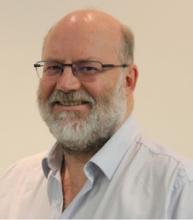Abstract
One of the most difficult challenges to overcome in a hybrid or remote work environment is the lack of social connection between team members—and worse, the often insufficient time that managers spend individually with their reports. Spending too little time one-on-one with your team members can have career-hindering effects: there’s not enough time for many of the conversations that lead to better work outcomes, such as giving feedback, career development discussions, and social time to build trust.
One-on-ones are the best tool at your disposal for ensuring that those vital conversations happen and that your team feels connected, even when you aren’t working together in an office every day. They’re incredibly valuable no matter what a team’s work setup is, but even more so when working in hybrid and remote teams: they might be the only time that an engineer gets to spend alone with their manager, putting a lot of importance on this single meeting type.
In this talk we’ll discuss why one-on-ones are so vital for teams that aren’t co-located, and how to leverage them to build strong relationships and a healthy team. We’ll also cover topics such as:
- The big benefits of virtual one-on-ones over their in-person counterparts
- How to structure hybrid one-on-ones to make the most out of the setup
- Why and how to use a shared agenda
- Common one-on-one issues, and how to troubleshoot them
- How to leverage one-on-ones to foster stronger relationships with peers
You’ll leave with many practical steps to successfully run your hybrid and remote one-on-ones, and learn how to use them to keep the team connected while working apart.
Interview:
What is the focus of your work these days?
I am a senior engineering manager at Fellow.app, which is a company where we're building a meeting notes and collaboration platform. I'm leading a few engineering teams there, both managing engineers directly and managers that manage their own teams there. So I am doing a lot of work around helping people develop into leaders and also helping to set the product direction for that meeting notes collaboration platform.
What's the motivation behind your talk?
I've been working remotely for ten years now and I have noticed that one on ones are some of the most important meetings to have for teams no matter what, but especially when working remotely. I really want to make sure that people are using that time to their benefit and really making the most out of it, because it's one of the most important types of meetings that you can have as a manager and as an engineer, because it's something that can really make or break your career and set the right direction for you. So I wanted to take all the lessons I've learned over the last ten years of working remotely and help people in this new remote hybrid world understand how to do those properly when you're not meeting with your manager or your direct reports every day face to face.
How would you describe the persona and level of the target audience for your session?
The target audience is going to be basically everyone - but especially managers and leaders of teams, and I think that it's going to be relevant for people even if you've been doing one-on-ones for a while. There are a lot of very granular things that I'm going to get into, about how to really make the most out of that time together and how to troubleshoot a lot of common issues that often, people leave to the side and let bubble up for a while. It's going to be relevant to everyone because I think it's on the manager to run great one-on-ones, but it's also up to direct reports to really make the most of that time and the user to their benefit. So I think that understanding the manager's perspective and seeing what they want to get out of one on ones is going to be very useful for engineers to set the direction for themselves.
What you would like the persona to walk away with. But is there anything specifically that you would like to highlight?
I want people to walk away with this understanding of what the purpose of one-on-one is, because that's something that's often not very well understood: how to run them well, how to get buy-in so that people actually want to participate in them and also how to troubleshoot when things go wrong. So a lot of direct, actionable tips about how to make these work.
Speaker

Alexandra Sunderland
Senior Engineering Manager @fellowapp
Alexandra Sunderland is an engineering leader with over a decade of experience working in both hybrid and remote roles, at companies ranging from 10-person startups to public corporations. She is currently a Senior Engineering Manager at Fellow.app, where she is helping to build the future of work. She prides herself on building emotionally-intelligent processes for teams, and sharing her knowledge of management through conference talks and written works. Alexandra is also the author of the book "Remote Engineering Management", the guide for empathetic and people-first management in a remote world.






